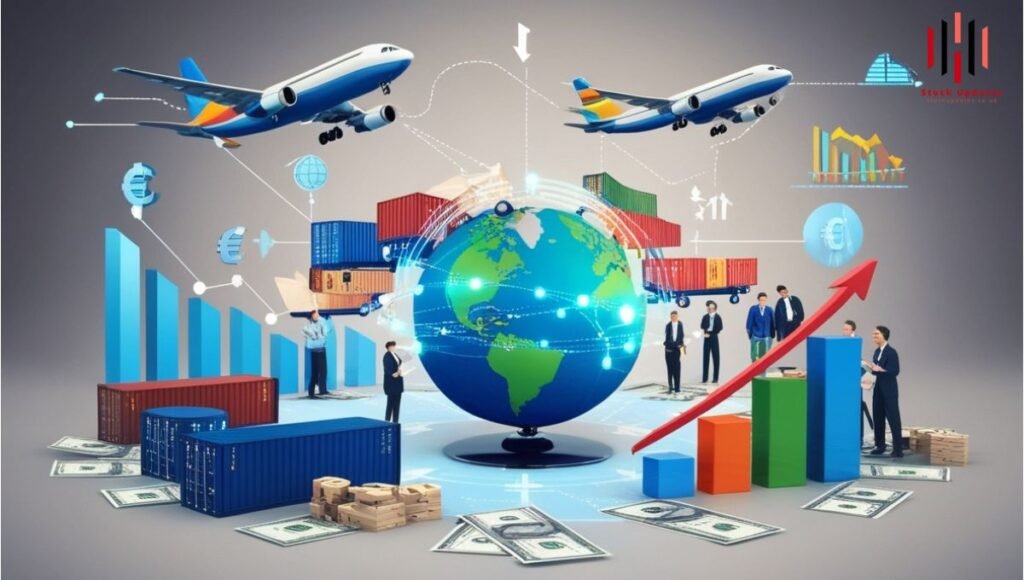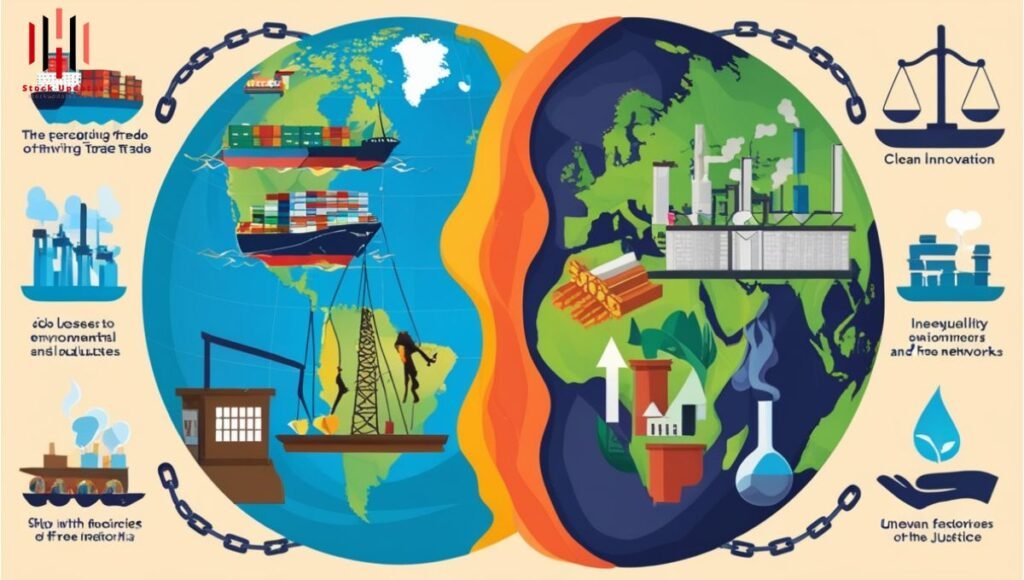Free Trade Peace Goodwill among Nations
Ideally, the idea of Free Trade Peace Goodwill among Nations is one of those shining lights in the present, which may act as cordial intermediaries among nations. The buying of goods and services in one country in exchange for those of another country without the damaging and limiting tariffs or barriers not only brightens up economic gain but also improves political relations and inter-cultural relations. The present paper aims at evaluating and understanding the principles, advantages, and disadvantages of free trade in the context of generating harmony among the nations of the world.
The Principles of Free Trade
The concept of Free Trade Peace Goodwill among Nations has its roots in the belief that it is possible for a country and other countries to receive greater overall advantages if the countries in question concentrate in the manufacturing of goods they are most capable of producing. This comparative advantage results into better distribution of the worlds resources through encouragement of importation to passage of goods and services hence making them cheaper for the consumers.
The core principles of free trade include
1. Elimination of Tariffs and Quotas
Minimizing trade costs entails the elimination of financial constraints to the promotion of ease of trade in the products.
2. Non-Discrimination
All trading partners must be treated equally to warrant fairness in the global market for goods and services.
3. Transparency
This condition is because open and predictable external policies promote trust between exporting and importing countries.
4. Competition and Innovation
Free Trade Peace Goodwill among Nations enables competition; hence it pushes firms to improve on their technologies and acquire higher productive efficiency.
Trade Liberalization a : Economic Argument for Free Trade

1. Economic Growth And Prosperity
On a similar note, free trade destroys barriers and that leads to wider market access thus causing firms to cover a higher market demand and hence they can be able to afford larger production scale. For example, exporting business may record increased levels of productivity since they are likely to be operating under the pressure of other international players.
2. Job Creation
Whereas, some sectors may experience difficulties, others explode and generate new working places. For example, the telemarketing and the IT jobs have greatly benefited from the globalization where manufacturing jobs, programming and technical support jobs and the customer relations jobs are found.
3. Consumer Benefits
Consumers get a wider variety of goods at reasonable price hence enhancing their quality lifestyle. Products ranging from electrical appliances, fabrics, and even foodstuffs which businesses import into this country are usually cheaper because of free trade.
| Economic Indicators | Countries Practicing Free Trade | Countries with Restrictive Trade |
| GDP Growth (2023) | 4.2% | 1.8% |
| Average Tariff Rate | 3% | 15% |
| Export Volume | High | Low |
Advantages of Free Trade as a Political and Social Activity
1. Peaceful Diplomacy
This research established that countries with high levels of trade integration hardly fight a war against each other. The major benefit for nations engaging in economic interdependence is that the need to solve any conflict amicably will be felt more than once hence enhancing long term peace.
2. Cultural Exchange
The flow of goods is usually followed by the exchange of ideas, tradition and or cultural practices. For instance, cuisines have traveled through the borders through global trade and spread common music and fashion trends across societies.
3. Reducing Inequality
Thus, trade reduces the gap between developed and the developing state even as differences continue to exist. Exportation of the product to the developed nation could transform the Economic fortune of a developing nation, hence increasing the standard of living of its citizenry.
Challenges of Free Trade

Despite its benefits, free trade is not without challenges:
1. Economic Disparities
The fact is that not all nations can have advantages while practicing free trade. It pays less to buy intentionally poor quality products from economically weaker nations hence possibly exploiting the weaker countries.
2. Loss of Domestic Jobs
Some sectors may reduce their production from competitive effect of imports, and in turn, result to people losing their jobs. For instance, Ma and Smith noticed that traditional manufacturing jobs in some developed countries of the west have declined because companies are increasingly moving their production elsewhere, mainly in the developing world where labor is cheap.
3. Environmental Concerns
Free Trade Peace Goodwill among Nations means more production and movement of these produces and this will lead to polluting the environment. There is a concern as to how developed the economy should be unorder to support the needed sustainability.
Steps to Enhance Free Trade
To maximize the benefits of free trade while addressing its challenges, nations can:
1. Invest in Education and Training
In this respect help the workers acquire skills that meet the demands of new economy.
2. Strengthen Trade Agreements
Make sure that agreements are reasonable and the most parties involved figured.
3. Promote Sustainability
Create measures in trade that reduce environmental issues.
Conclusion
The Free Trade Peace Goodwill among Nations is a powerful factor for peace and goodwill of the nations, for the general welfare. In this way, economic integration promulgates mutual dependence rather than conflict, improving the general cooperation among the countries. Nevertheless, it demands considerable attention to pay for inequalities and challenges in the external environment. Integrated into the mission of attaining a connected and better world, free trade function allows for attaining a better and stable world.
Read more about Invest and other categories At Stock Updates.
























Post Comment